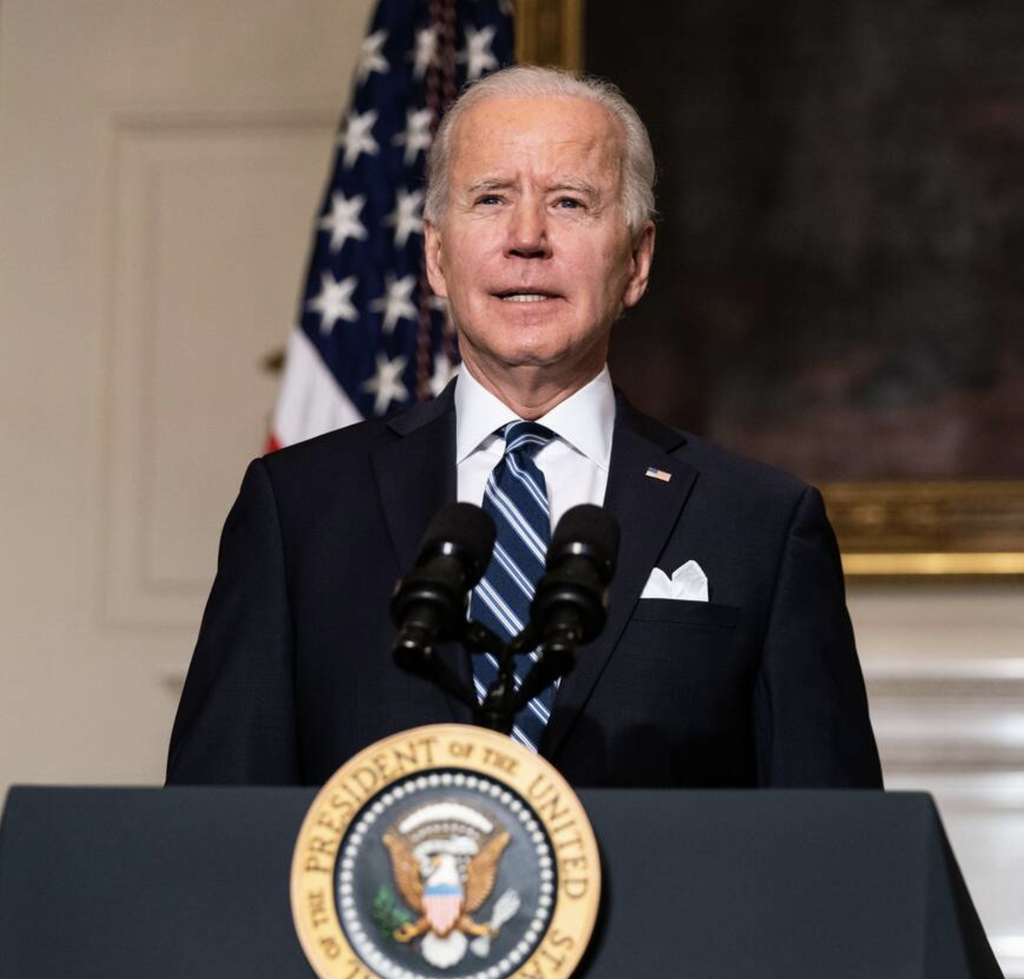A data scientist has predicted the winner of the 2024 U.S. presidential election.
In an era where data has become indispensable in shaping political campaigns, predictive models are now being used to forecast who may be the next president.
Although traditional polling methods have long dominated election forecasts, the rise of machine learning and advanced data analytics is offering new avenues for understanding voter behavior and predicting outcomes.
And now, one data scientist has predicted a landslide victory for one candidate.

People have been left shocked by the scientist’s forecast, with one person penning: “This is so scary to think about!”
Another agrees: “My stomach won’t unclench until after the election.”
“We can only hope,” adds a third.
In late 2020 and early 2021, Fortune‘s Shawn Tully reported on the election predictions made by Thomas Miller, a data scientist at Northwestern University.
The unique methodology Miller used to predict the presidential election outcome was also used in the two pivotal Georgia senatorial contests (where Democrats secured unexpected victories handing them control of the Senate).

Elections have always involved data, but its role has evolved significantly in recent years.
From early voting records and demographic trends to social media interactions and economic indicators, political campaigns are now driven by vast amounts of information.
Data scientists are tasked with making sense of these complex datasets to identify patterns and trends that traditional polls may overlook.
Polls may ask voters how they feel about a candidate at a specific time, but data-driven models incorporate dynamic factors such as shifts in voter sentiment, economic changes, and media coverage.
Analysts can potentially offer a more nuanced and accurate prediction by looking at the broader ecosystem of data surrounding an election.
And now, Miller has returned to the spotlight, using his distinct model to forecast the upcoming 2024 presidential election.

Miller’s unconventional prediction may raise eyebrows among pollsters, pundits, and readers alike but his forecast demands attention for two reasons.
Firstly, his method involves data analysis that could be seen as more scientific than the polling methods usually cited to predict elections; and second, his 2020 predictions were almost spot-on.
In the 2020 races, Miller’s projections outperformed nearly every poll and model that analyzed multiple voter surveys.
He came within 12 electoral votes of predicting Joe Biden’s win, getting every state right except Georgia.
In the Georgia senate runoffs, he produced accurate predictions once again.

Despite polls showing Republican David Perdue leading Democrat Jon Ossoff, and Kelly Loeffler in a close race against Raphael Warnock, Miller forecasted that Loeffler would lose by a large margin and Ossoff would win by a narrow one.
His predictions were astonishingly accurate: he was off by just 0.2% on Warnock’s margin and nailed Ossoff’s final 1.0% victory margin, as reported by Fortune.
Miller’s method differs from typical political forecasts by focusing not on polls but on the prices people are willing to bet on the candidates they believe are most likely to win.
He told Fortune: “Political betting sites are the best at predicting the wisdom of the crowd.”
According to the data scientist, polls provide ‘a snapshot of the recent past’ while betting odds forecast the future.
He explained: “The pollsters are asking respondents whom they’re planning to vote for at that moment, which may have changed a few days later when the results are posted. Most polls are around four or five days behind.”

Miller also proposed a different question than ‘Which candidate will you vote for?’ by suggesting: ‘Which candidate do you expect to win?’
Pollsters rarely ask this question, but it’s exactly how bettors on political markets are making decisions.
For the 2020 election between Biden and Donald Trump, Miller utilized PredictIt, the largest U.S. political betting platform.
The data scientist monitored the odds across all 56 voting jurisdictions, tracking changes by the hour and incorporating the data into his proprietary model, allowing him to stay current with the latest trends.
He adopted a slightly different approach for the Georgia Senate races by paying around 1,200 Georgians to participate in a ‘prediction survey,’ asking them not who they would vote for but who they thought would win.
This combination of polling elements and betting market data allowed Miller to achieve near-perfect predictions for both Senate races.

Miller is again using PredictIt to analyze the 2024 presidential election.
He sees it as a liquid market, much like financial markets, incorporating new information quickly and giving a forward-looking view of the election.
For the upcoming 2024 election, Miller has developed a generalized linear model based on data from the past 16 presidential elections.
This model closely aligns PredictIt’s daily betting prices with the popular vote.
According to Miller’s model, if bettors give a candidate 52 cents, it suggests that 52% of the electorate plans to vote for that candidate at that moment.
So, who is the data scientist’s money on?

Miller tracks the betting odds daily and has been able to plot key election events on a graph he created called ‘Effects of Current and Campaign Events on Forecasted Electoral College Votes,’ as available on his website The Virtual Tout.
Early in the race, Trump was leading in the betting markets yet Kamala Harris has now taken a commanding lead following major events like Biden’s withdrawal and her official nomination.
A dramatic turning point came after the Trump-Harris debate in September, where Harris surged to over 400 electoral votes, per Miller’s model.
Miller believes the endorsement Harris received from Taylor Swift on the day of the debate played a role in Trump’s sudden decline.
His analysis shows that if current trends persist, Harris is on track for a landslide victory, potentially earning over 400 electoral votes and sweeping major battleground states like Michigan, Pennsylvania, and North Carolina.
“We’re talking about a blowout where Harris gets over 400 electoral votes,” Miller declares, predicting that Trump’s chance of a comeback is slim unless something drastic changes.